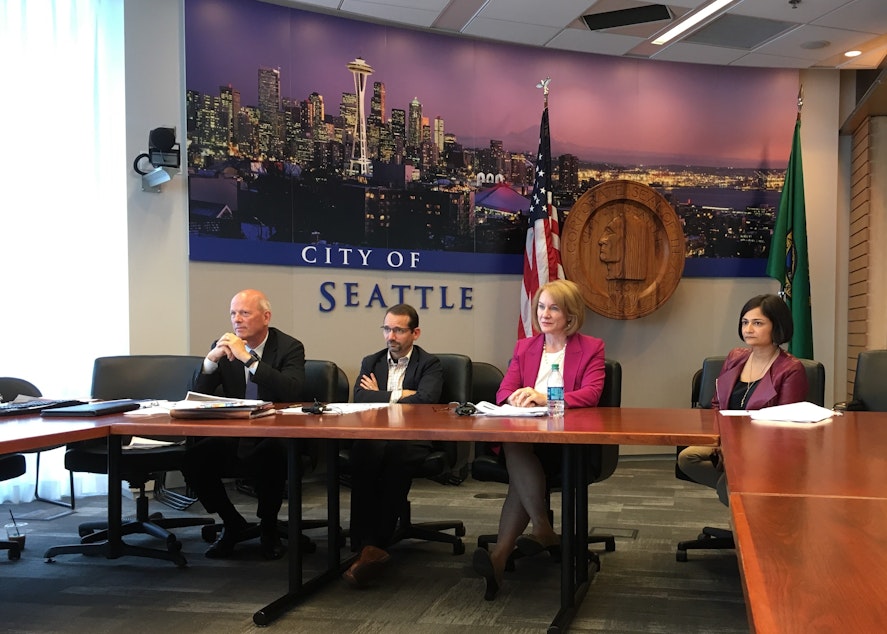Streetcar project's fate uncertain after report reveals more costs

The Center City Connector streetcar project is in worse financial trouble than what was previously thought.
A long-awaited report by the accounting firm KPMG says the project could cost as much as $252.5 million, a far cry from the $143.2 million estimated just three years ago.
That price hike does not include the uncalculated cost attached to the discovery that the streetcar vehicles ordered for the project are too big: Turns out they are too long to fit into the city’s maintenance barn, may be heavier than road structures can withstand, and may not be able to turn corners without trouble on the existing tracks.
At a media briefing on Friday afternoon, mayor Jenny Durkan told reporters that Seattle could not change the vehicle order to smaller size. The company under contract to build the streetcar vehicles, CAF of Spain, did not make a smaller size, she said.
“There’s no excuse that the streetcars don’t fit,” Durkan said. Of the financial status of the entire streetcar project she added: “This is not good news. This is the news I was given."
Final estimates on the costs of making changes to the existing rail system because of the bigger streetcar vehicles may not be complete until early November.
The Center City Connector is the streetcar line that would join the South Lake Union and First Hill Streetcar lines, which are already operating. The Connector would run 1.2 miles along First Street, a route that proponents argue would help tourists visit Pioneer Square and Chinatown/International District.
Ridership of the existing streetcar lines has been disappointing. Ridership of the First Hill streetcar was supposed to be 1.27 million in 2017. Instead it was 984,000. South Lake Union ridership was expected to be 2.11 million in 2017. It turned out to be just 1.55 million.
The low ridership has led to higher-than-expected operating costs on the streetcar system.
City Budget Office Director Ben Noble said the total operating debt of the existing lines stood at $7.1 million. The city had been supporting the existing streetcar lines with money from other parts of government.
“It’s inexcusable that we didn’t have the right and real numbers from the beginning, that people didn’t ask the right questions from the beginning and that we didn’t tell the public the truth,” Durkan said.
Durkan now must decide whether to build the Connector project and whether to reduce service on streetcar lines in order to control costs. She said would await a full accounting of the cost of the streetcar vehicle “error” before deciding.
Those decisions could impact federal funding. A total of $75 million was promised by the Federal Transportation Administration to help defray the cost of building the Connector.
Seattle taxpayers would have to cover any amounts not paid by the FTA, including the potential costs if the Connector gets built but service along the line is reduced from the original plan.



